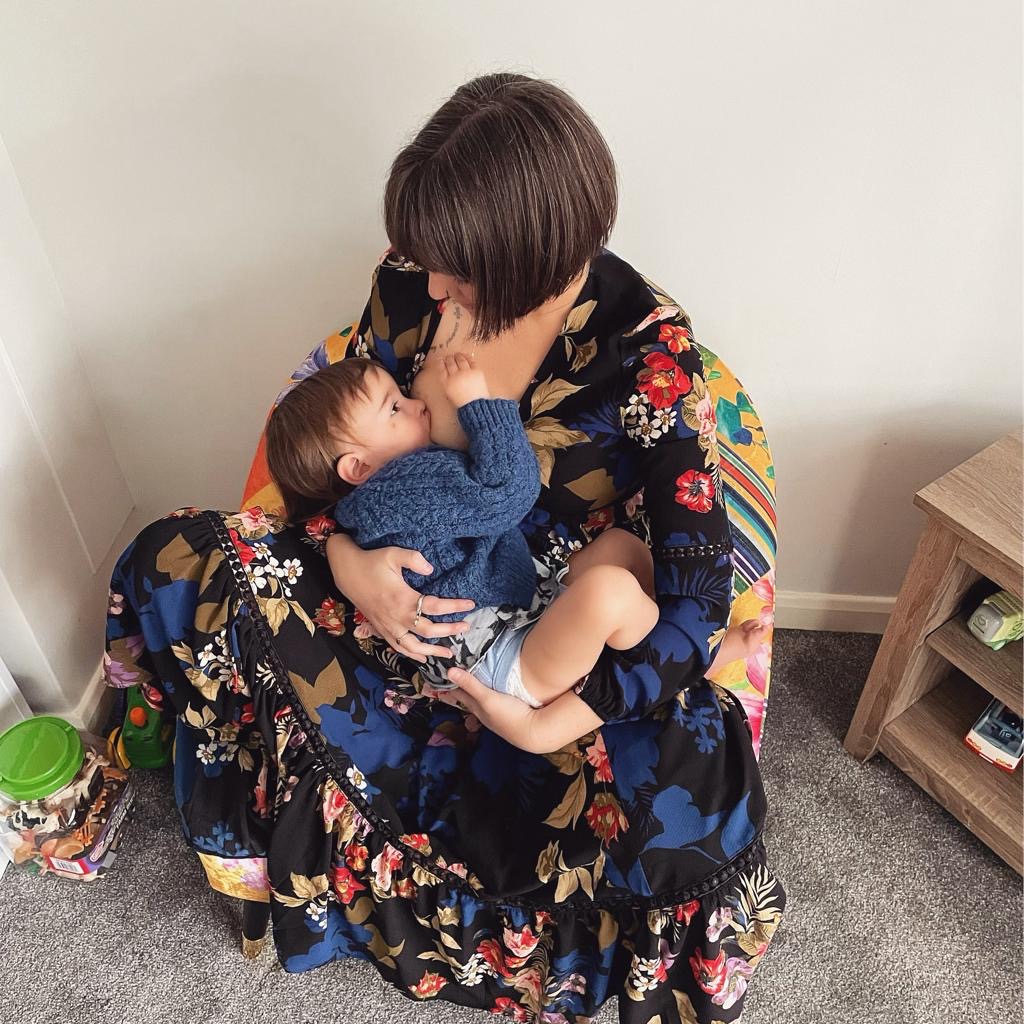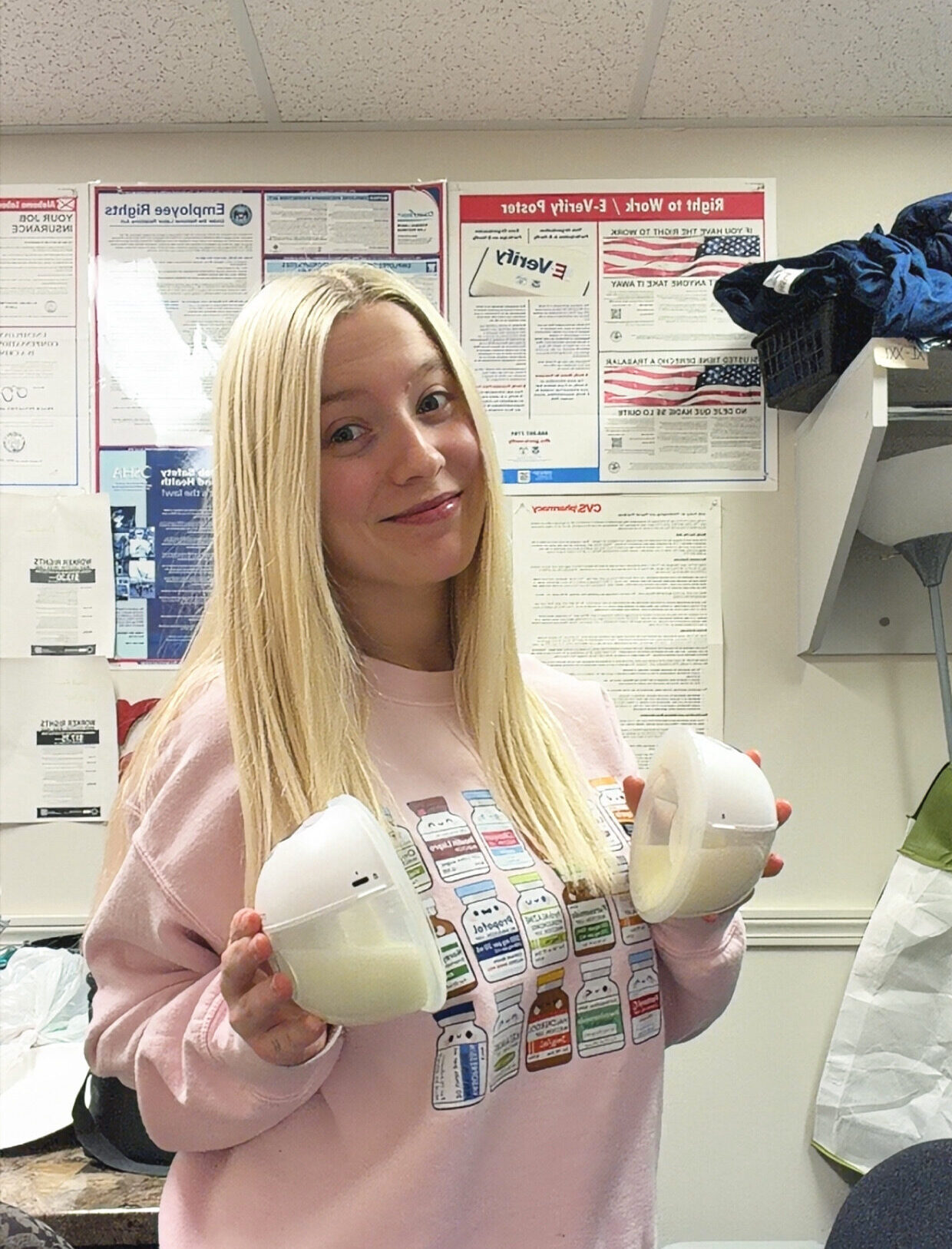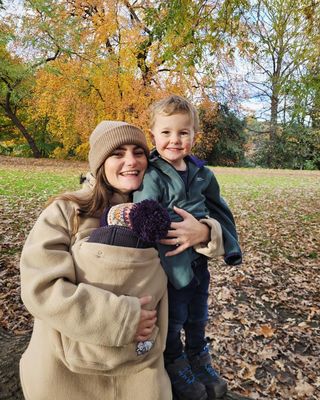There is a notion that breastfeeding and positive sleep are incompatible. Social Media is presenting more and more opinions that suggest that parents have to choose between a positive breastfeeding experience or a positive sleep experience. Both sleep and feeding are important human needs, with health benefits.
I have worked with parents who felt ready to forsake their own breastfeeding journey for the sake of developmentally appropriate sleep and I have supported them to promote more sleep (for both them and their infant) whilst safeguarding their own breastfeeding goals. I challenge the concept that parents have to choose between one or other. Breast milk and breastfeeding, can actually promote quality sleep in infants. Studies have shown that there is a reduced rate of SIDS (Sudden Infant Death Syndrome) in breastfed babies suggesting that breast milk may not only promote quality sleep but also safer sleep.
4 tips to promote positive sleep in breastfed babies

Breast milk is amazing, as it actually contains melatonin (the sleepy hormone), which encourages drowsiness and helps baby relax and sleep. Babies are not able to produce their own melatonin until they are approximately 6 – 8 weeks old. They therefore rely exclusively on their mothers breast milk to obtain this hormone in the initial weeks. Breastmilk contains significantly more melatonin in the evening time, to promote sleepiness in baby prior to their night sleep, helping them to develop a 24 hour day / night clock known as a ‘circadian rhythm.’ If you choose to express, it can therefore be beneficial to label the time of day you express each milk sample at and ensure that this is given at corresponding times, for maximum melatonin benefit.
Given the benefits of melatonin in breast milk, mum can take steps to increase her own melatonin production. Melatonin is light sensitive, as light interferes with its production. It can therefore be beneficial if mum limits her exposure to artificial light (blue light from phones, tablets, television, bright lights) in the hour before baby’s final feed of the day. It can be advantageous to install dimmer lights to be used in the home in the evening. Not only will this aid mum’s melatonin production, but it will also act as a ‘sleepy cue’ for baby to associate that night-time and therefore sleep-time is approaching.
Once baby is able to produce their own melatonin there are so many ways we can support this. My number one top-tip is to install black-out blinds. Black-out blinds prevent light entering your babys’ bedroom. It can also act as a sleepy cue to baby if dark signals that it is time to go to sleep. Babies are usually not afraid of the dark (the womb itself is dark) and for this reason I don’t believe nightlights are necessary. However, if you to choose to use a nightlight, research suggests that red based lights are the least disruptive to melatonin production. I therefore recommend using a red based light for night feeds.

Baby massage is an excellent addition to a baby’s night-time routine. Research suggests that babies who were massaged for 15 minutes per day cried less, had lower levels of stress hormones, and went to sleep faster. Like breastfeeding, baby massage can stimulate the production of oxytocin, a hormone that can promote bonding and alleviate pain (therefore great for babies experiencing teething, constipation, or wind). It can sometimes be beneficial (but not essential) if the non-breastfeeding parent completes this element of the night routine, allowing oxytocin to be promoting by them in the absence of breastfeeding.
If you are feeling the effects of sleep deprivation, please do not feel that you have to sacrifice your breastfeeding journey in pursuit of more sleep. The two can be compatible, subject to your child’s age and development. However, if you need any support with either breastfeeding or sleep to not be afraid to reach out to a friend, support group or specialist in that area.


















